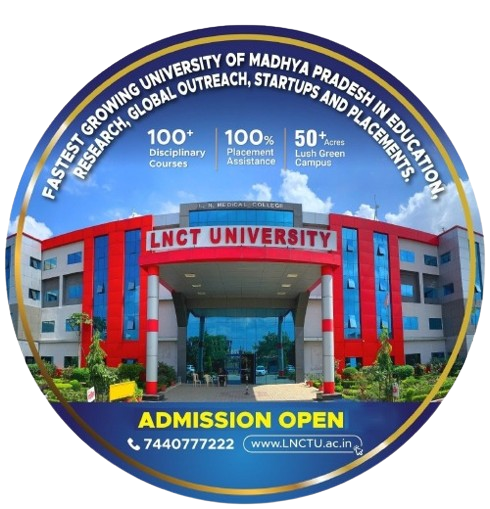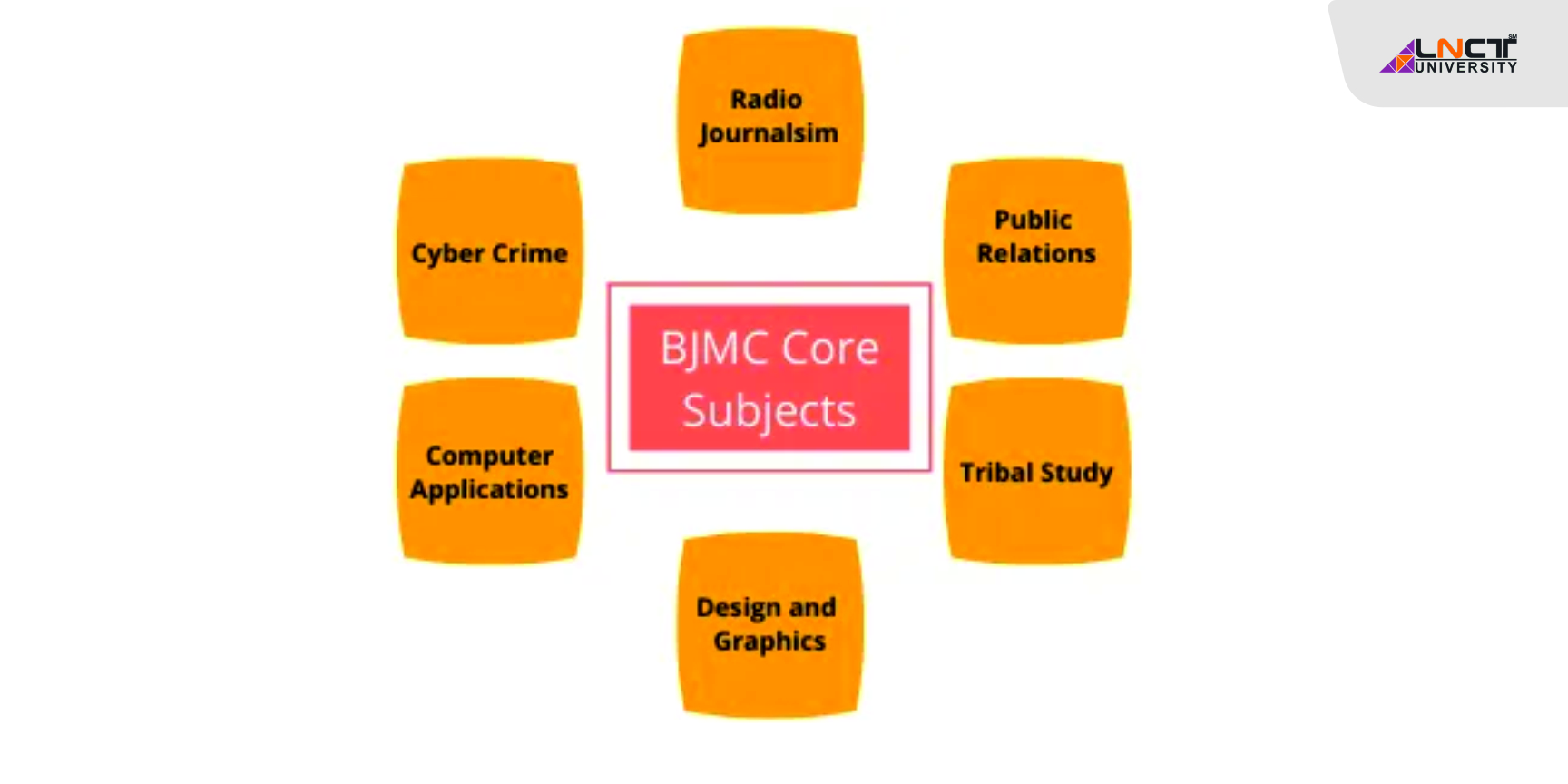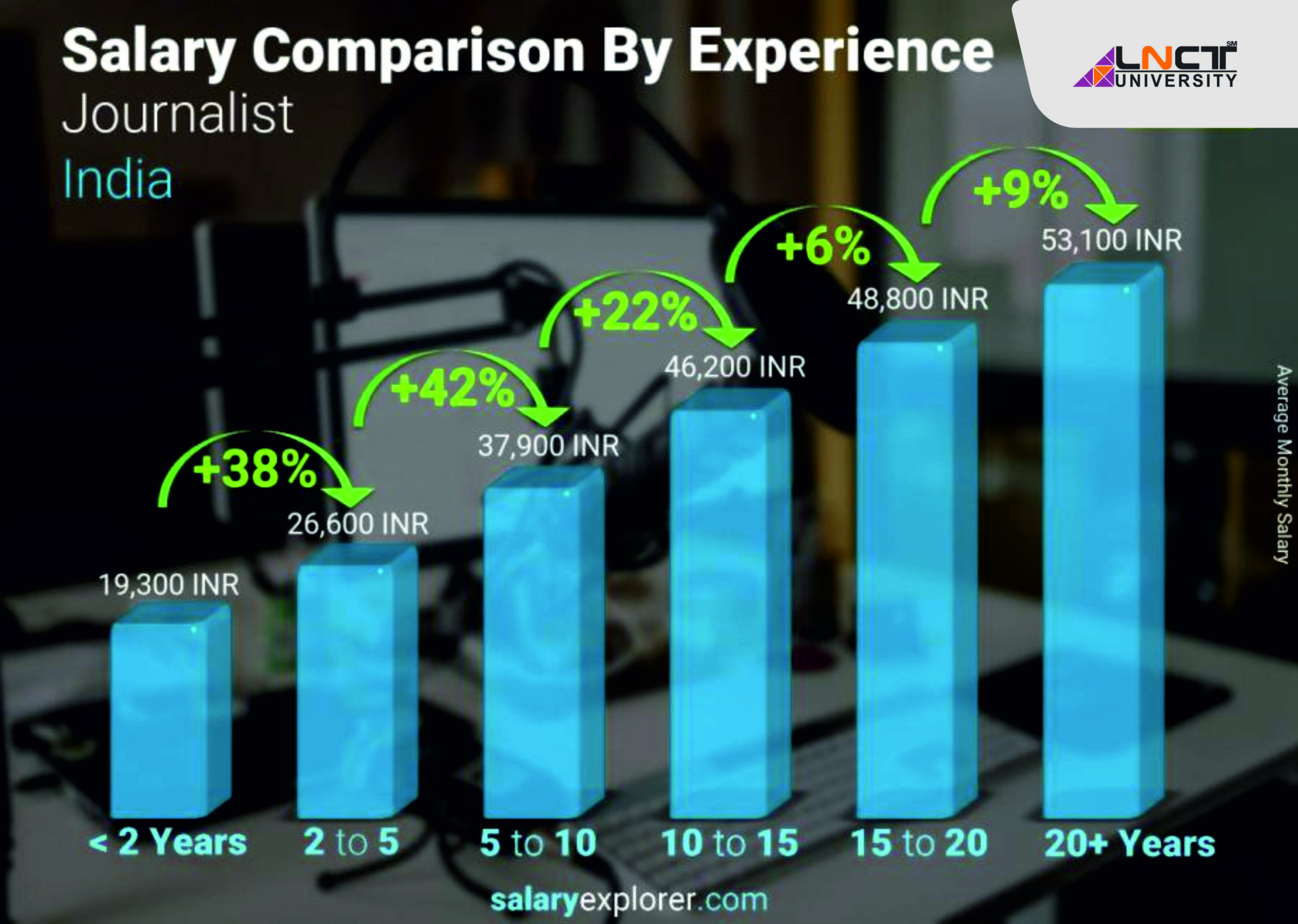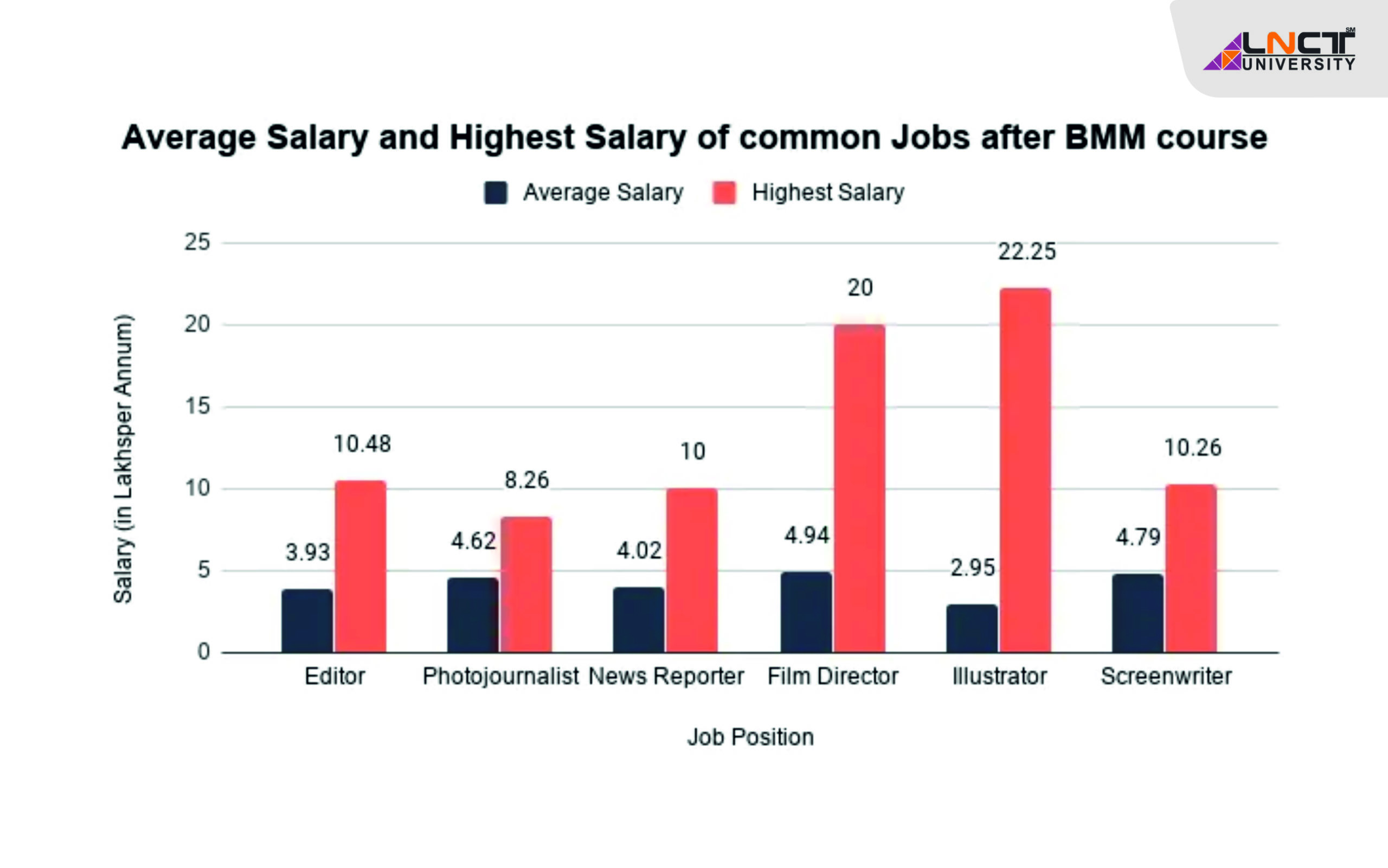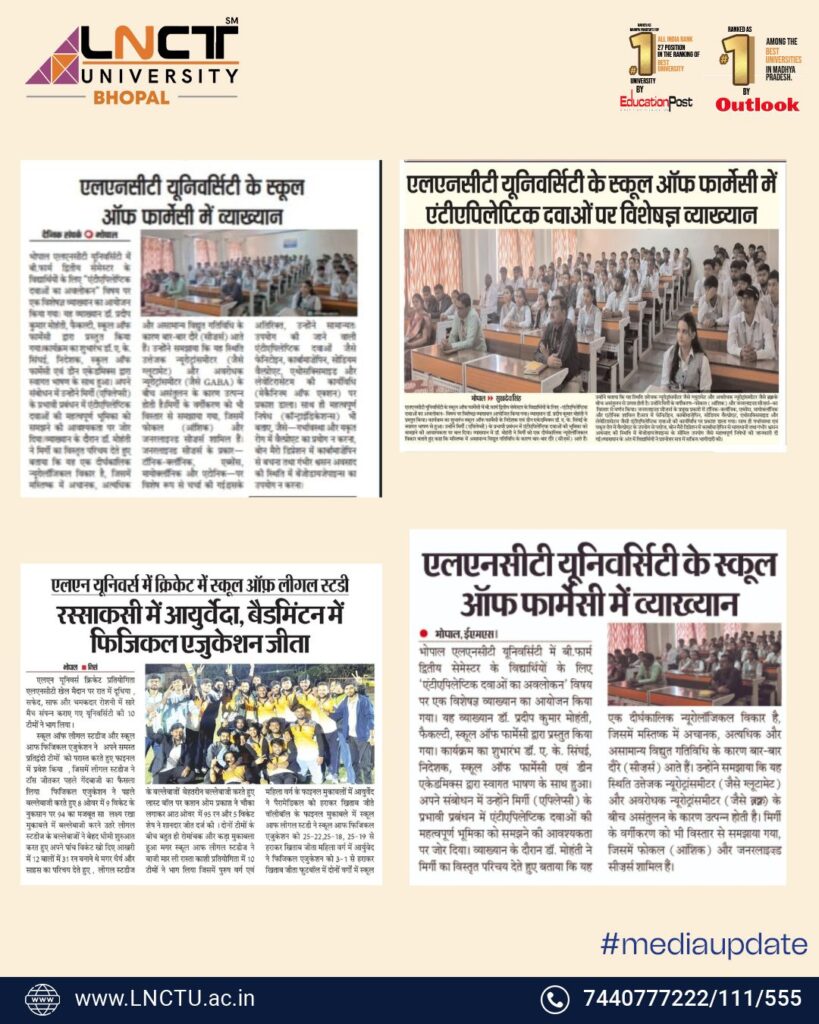BA in Journalism & Mass Communication- Enroll Now, Eligibility, Jobs
BA in Journalism and Mass Communication is usually a three-year undergraduate degree program. It primarily deals with providing holistic knowledge & understanding both theoretical & practical aspects. The UG level program entirely inculcates with the latest technical skills & develops social understanding among the students.
Throughout the course program, students are taught about various aspects like history, culture, budget issues, government issues, government matters, entertainment & sports. These aspects reach the general public via TV, Radio, & a plethora of web-based social networks.
Generally, the field of journalism is completely based on truth, autonomy, & transparency. The extensive course is fabricated to deliver comprehensive elementary discipline in ten different branches of communication.
Now, coming to the most important disciplines of the BA in Journalism and Mass Communication that involve Communication Theories & Models, Computer Applications, Tribal Study, Design & Graphics, Digital Media, Reporting & Editing for Print Media, Print Journalism, Television & Radio Production, Advertising & Public Relation, Data Journalism, Photo-Journalism Event Management, Social Media, Film Studies, & Media Law & Ethics.
This UG level degree program provides ample choices for various elective courses such as
- Entrepreneur Development,
- Business Communication
- Foreign Language (French or German)
- Human Resource Development
- Socio-cultural History of India, Organization, and Behaviour
- Fashion Communication
- Leadership Development & Team Building
The fundamental motive of the BA in Journalism and Mass Communication is to produce socially responsible media professionals, amateurs with the advanced inputs of industry. Also, the faculties provide proper guidance & training to the students to secure their careers in this field.
The course curriculum perhaps includes the following which is mentioned below:
- Seminars
- Computer-aid learning
- Guest lectures
- Workshops
- Massive Open Online Courses (MOOCs
- Industry Certification-training
Click here to download the PDF Report of Media Industry in India
Apart from the above-mentioned points, a spectrum of innumerable individual & group projects works. That includes a variety of live projects, incubation projects, community projects, & projects in association with NGOs.
For applying for BA in Journalism and Mass Communication, aspirants have to qualify for their 10+2 exam, in any stream from a recognized board. They must secure a minimum of 50% marks in aggregate to enroll themselves for the BA in Journalism & Mass Communication.
The average fee structure for BA in Journalism and Mass Communication course generally ranges between ₹ 2, 0000 to 5, 00,000& it differs from one institute to another. Desirous candidates can further go for higher studies after BA in Journalism & Mass Communication by opting for a Master’s in the same. Then they can further pursue a Ph.D. in Journalism & Mass Communication.
This field is extremely broad when it comes to bagging high-paying job opportunities. Graduates can start working in various advertising agencies, broadcasting corporations, radio telecasting companies, magazines.
Also, they can work in the Legal Affairs department by holding top-rated positions such as Columnist, Radio Jockey, Photojournalist, News Reporter, Copywriter, & Food Critic.
The salary package will keep increasing as per the work experience, skillsets & knowledge in the field.
Major Course Highlights of BA in Journalism and Mass Communication
| Course Level | Under Graduate Degree Program |
| Full-Form | Bachelor of Arts in Journalism and Mass Communication |
| Course Duration | 3 years |
| Examination Type | Semester-based |
| Eligibility Criteria | 10+2 education or equivalent, in any stream, with an aggregate of 50% |
| Admission Process | Merit-based &Entrance-based |
| Average Course Fee (₹) | 2,000 – 5 Lakh |
| Average Salary Package offered (₹) | 4-10 Lakhs Per Annum |
| Top Recruiting Companies in this field | NDTV Network, Star India, BBC, Hindustan Times Group, Zee TV Network, TV 18, Outlook, India TV, CNBC, Indian Express |
| Top Job Profiles | Feature Writer, Illustrator, Photojournalist, Anchor, News Reporter, Fashion Critic, Video Jockey (VJ), Copywriter, Editor, TV Correspondent, Food Critic, Public Relations Officer |
BA in Journalism & Mass Communication: Eligibility Criteria
The eligibility criteria that required for applying for the BA in Journalism and Mass Communication are discussed below:
- Aspiring candidates who hold a qualification degree in 10+2 schooling or relevant, in any stream, with a minimum of 50% marks. They are considered eligible to enroll themselves for BA in Journalism & Mass Communication.
- The higher the marks, the higher the chance of bagging admission to a recognized institute. Therefore, aspirants will have to secure very good marks for applying for in BA in Journalism & Mass Communication. Apart from the entrance test, institutes also admit students based on their previous academic records. However, the cut-off mark for the examination generally varies from college to college.
- Candidates who belong to reserved categories such as SC/ST/OBC offered a relaxation of 5% of the marks by the respective colleges.
Admission Procedure of BA in Journalism and Mass Communication
Admission for the BA in Journalism and Mass Communication based on a merit-based system. Now, coming to the admission process, there are mainly two types of admission offered by the colleges which are as follows:
Direct Entrance: Various colleges throughout the country, admit candidates directly based on the marks obtained by them in board exams. The in-depth details regarding this are mentioned below:
- Candidates are selected based on their previous academic performance in some of the colleges. But they have to ensure that they fulfill the eligibility criteria before applying for the BA in Journalism & Mass Communication.
- Candidates can also apply for colleges handling various merit-based entrances via online or offline applications. Although, the mode of payment will be the same as that of the respective application.
Exam-based Entrance: Under this system, an aspirant candidate will have to sit for the entrance exam conducted by the colleges. The detail of this entrance exam is thoroughly discussed below:
- There are very few colleges that organize entrance exams every year, for applying for the BA in Journalism & Mass Communication.
- Before sitting for the entrance tests, candidates have to register themselves & clear the payments via an online mode of payment.
- Mostly every college across the country, accept entrance exam marks in accordance with a common selection procedure. The cut-off marks are entirely dependent on colleges respectively.
- For those candidates who fall under the reservation category like SC/ST/OBC, colleges will prove a relaxation of 5% to these candidates.
The selection process includes primarily three essential steps-
- Shortlisting:
Generally, colleges make their selection based on marks obtained by the candidates in the entrance exams. Apart from the marks of the entrance exam, colleges also make a selection based on academic records.
- Personal Interview (PI):
After doing the shortlisting, the next step is to appear in the Group Discussion followed by a Personal Interview (PI) round. The main objective of conducting these sessions is to check competence, critical thinking, knowledge, & communication skills.
- Final Selection:
After successfully clearing the PI round, now it’s the right time of making the final selection of the candidates. It is the last & final step of selection where only eligible candidates will get admission to the respective colleges.
After a candidate is entitled to get admission to a recognized University, he/she have to submit the following documents which prove his/her candidatures:
- Marksheets of Class X & XII.
- Admit card of the corresponding entrance exam, mark sheet & rank letter.
- Six passport-size photographs.
- Character certificate.
- Reservation certificate (if any).
- Migration Certificate.
- Self-attested copies of several identity verification documents.
- Domicile Certificate.
- Demand Draft.
Lists of BA in Journalism and Mass Communication Entrance Exams
There are a variety of entrance exams organized by the central government. Almost every BA in Journalism & Mass Communication College in India finalizes candidates based on the performance of these tests. However, some of the institutes conduct their own entrance exam based on which they select eligible candidates.
Mentioned below, some of the well-known & common national level entrance exams:
- IPU CET: Organized once a year, by only one University in India is the Guru Gobind Singh Indraprastha University (CGSIPU). This entrance test is conducted for admission of BA in Journalism & Mass Communication provided by CGSIPU & its affiliated colleges. Also, the PG course admission is done based on this entrance test.
| Subjects | Patterns | Total no. of questions |
| English | Reading Comprehension, Error correction, Spelling Errors, Fill in the blanks, antonym/synonym, idiom and phrases, one-word substitution, omission, and alike |
25 |
| General Awareness | History, Geography, Polity, General Science, Current Affairs, Five-year plans | 25 |
| The Reasoning or Mental Ability | Analogies, Blood Relations, Alphabet Test, Venn Diagram, Non-verbal series, sitting arrangements, puzzle, letter, and symbol series | 25 |
| Media Aptitude | Questions related to the social issue | 25 |
The entrance exam consists of a total of 100 questions. The allotted time duration to complete this paper is 90 minutes (1.5 hours).
Now, the State-level examinations of BA in Journalism and Mass Communication are listed below:
- SPPU Entrance Exam: Conducted by SavitribaiPhule Pune University (SPPU) for providing admission of BA in Journalism & Mass Communication. Admissions of the PG course program also take place through this entrance exam.
- MH CET: It is also conducted once a year by the State Common Entrance Test Cell, Mumbai. Through this entrance test, they offer admissions to various UG & PG Programs, especially in Engineering, Pharmacy, Arts & Science.
Now, it’s time to have a look at the University-level exams which are as follows:
- JET: Managed by Jain University to offer admissions to several UG & PG programs.
Step-by-step Preparation for Entrance Exam for the BA in Journalism and Mass Communication
The time duration of each entrance exam is generally between 1 to 3 hours. The maximum marks allotted for each of these examinations will be different though. Meanwhile, the paper pattern is quite similar & students, perhaps prepare for any of these exams with some common procedures
Tabulated below, the exam pattern for IPU CET 2020:
| Section | No. of questions |
| Physics | 50 |
| Chemistry | 50 |
| Biology/Mathematics | 50 |
| Total | 150 |
Other Necessary Details are as follows:
- The main motive is to test the aspirant knowledge in the PCB subjects.
- Negative marking will be there for wrong answers.
- Maximum marks allotted: 600
- The medium of Examination will be English.
- Candidates must possess deep knowledge in subjects such as PCB subjects, & Mathematics.
- Various examinations test the knowledge of a candidate on General Aptitude, Logic, &/or Comprehension.
Steps of getting admission in a good college for the B.A. in Journalism and Mass Communication
Mentioned below, are the steps to bag admission in a good college for the B.A. in Journalism and Mass Communication:
- As the majority of the colleges admit students based on a merit-based system. The candidates should secure a high percentage in subjects in their class 12 board exams.
- Institutes provide admission by conducting entrance exams followed by taking a personal interview which is discussed below:
- Exam Score:
- Obtaining a good percentile that can beat the required cut-off set by the institutes is a gateway to being shortlisted. Candidates must be aware of the cut-off marks of the entrance test for the BA in Journalism and Mass Communication. So, concentrate on your studies &work hard to achieve good scores in the entrance exams.
- Keep practicing various mock question papers. Also, sit for the mock test before appearing for the actual entrance exam. By giving the mock test you will have a clear idea of the question paper pattern of the entrance tests. Improvise your understanding & knowledge by practicing various previous year question papers also.
- Personal Interview (PI)
- Candidates have to enhance their communication skills, critical thinking & current affairs. These are some of the crucial aspects that are tested by institutes during this round.
- If you have participated & got certification in a variety of extra-curricular activities such as clubs, sports, & NGO volunteering acts as a point of favour to your list of merits.
Apart from the above-mentioned pointers, other important suggestions are as follows:
- Make sure you regularly visit the college’s official website to know about the dates of registration & examinations. Apply for the same before closing the deadline.
- Start preparing for the test in advance with full of vim & vigour to score high marks in the entrance exams.
- Make yourself stay updated with current affairs as it is the most essential part of journalism.
- Non-stop practicing for the group discussion as well as the personal interview rounds & makes stronger your communication skill. Generally, these two rounds are conducted by the colleges after the entrance exams.
Click here to know the best school in Bhopal for BA in Journalism and Mass Communication
Syllabus of the BA Journalism and Mass Communication
Given below, the following table showcases the semester-wise course curriculum designed for a BA in Journalism and Mass Communication:
| Semester I | |
| Fundamentals of Communication Skills | English Literature I |
| Fundamentals of Computers | Reporting-Theory |
| Reporting-Practical | Fundamentals of Journalism |
| Semester II | |
| Writing for Media-Theory | Writing for Media-Practical |
| English Literature II | Introduction to Indian Constitution |
| Editing-Theory | Editing-Practical |
| History of Media | – |
| Semester III | |
| Radio Broadcasting-Theory | Radio Broadcasting-Practical |
| Photojournalism-Theory | Photojournalism-Practical |
| TV Broadcasting-Theory | TV Broadcasting-Practical |
| Introduction to Cinema | – |
| Semester IV | |
| Advertising-Theory | Advertising-Practical |
| Magazine Journalism-Theory | Magazine Journalism-Practical |
| Public Relations-Theory | Public Relations-Practical |
| Internet & New Media-Theory | Internet & New Media-Practical |
| Semester V | |
| Environment & Media | Media Criticism |
| Media, Society & Development | Basic Media Research |
| Semester VI | |
| Information Society | Media Law & Ethics |
| Organizational Behavior& Media Organization | Project |
Lists of important books for the BA in Journalism & Mass Communication
BA in Journalism & Mass Communication is a three-year course program designed for the students to gain knowledge about this field. Both theoretical & practical subjects are taught during this entire curse program. By reading the books students will learn the fundamentals of basic communications & media methods. Some of the most important books that are really helpful for students of the BA in Journalism & Mass Communication are listed below:
| Name of the Books | Name of the Author |
| Personal Growth Companion | D.M. Silveira |
| Mass Communication in India | Keval J Kumar |
| DU Journalism and Mass Communication | Arihant Publications |
| Mass Communication: Principles and Concepts | SeemaHasan |
| Essentials of Practical Journalism | VirBalaAggarwal |
| Fundamentals of Computers | V Rajaraman |
| Journalism and Politics | M.ChelapatiRao |
| Role of press in the freedom movement | M.Bhargwa |
| Professional Journalism | PatanjaliSethi |
| Modern Journalism and News writing | SavitaChadda |
Perks of studying the B.A. in Journalism and Mass Communication
Studying the B.A. in Journalism & Mass Communication has a plethora of benefits for flourishing your career. Discussed below, the following points for opting for this post-graduate degree program:
- The program renders enormous help to the students with adequate knowledge & mandatory skillsets. Having a deep-rooted understanding of these will help them once they start working in media organizations. This is an extremely vital requirement for Mass Communication.
- During the entire degree program, students are taught to develop & apply problem-solving skills. Besides that, they also learn how to acquire interviewing, investigate, & reporting skills. In addition to these, they also acquire an analytical approach to resolve issues & trends, research aptitude, & networking skills.
- A. in Journalism & Mass Communication provides a lot of help to the students to learn the fundamental principles of mass communication. During this course program, students study the latest emerging trends & media issues, recent technological trends. Furthermore, they also taught about the current advancement & innovations in the field of journalism.
- Students get to know about the exposure to plenty dimensions of print, electronics, & new-age media. Along with these, there are various technologies integrated with mass communications. Such as computer applications, & software & hardware used in print, radio, TV & internet.
- Students can show their progress in competency in conceptualization, creativity, designing. They can also successfully create strategies for extremely high-quality media content for TV, radio, films, & several digital platforms, for instance, social media.
- As we have already discussed, that this study program helps the students to develop skills to accumulate, implement, transfer & provide various information to a large audience. The career of people is more revitalized in non-metro cities & small towns because of the prominent exposure of regional media. It has also become possible for the amplification of various new media businesses & formats.
BA in Journalism and Mass Communication: Specialization Offered
BA in Journalism and Mass Communication has a variety of specializations. These specializations make sure the speedy chances of bagging a lucrative job in various branches of journalism.
The most popular & eminent specializations of Journalism & Mass Communication are Advertising, Public Relations, Event Management, Journalism. Apart from these, the field of journalism & mass communication also offered specializations in Digital Media & Broadcasting.
Tabulated below, some of the specializations offered in the BA in Journalism and Mass Communication mentioned in a nutshell:
| Specializations | Journalism | Public Relations |
| Objectives of the course program | Primarily focus on the news and media industry, and develops& increases proficiency on various latest equipment applied in journalism, and acquires adequate knowledge on politics, society, culture, computer applications, and electronic media. These are very essential aspects for becoming a successful & popular professional in this field. | In this course program, students learn about the principles behind the transmitting of information from an organization. Or a public figure to demonstrate the target audience efficiently for creating very important relationships. |
| Course Duration | 3 years | 3 years |
| Average Course Fee (₹) | 20,000 – 4.5 Lakhs per annum | 50,000 – 3 Lakhs per annum |
| Average Placement Package offered to the graduates (₹) | 3.5 – 6 LPA | 2-8 LPA |
| Job Positions | Editor, Journalist, Reporter, Photojournalist, Screenwriter, Columnist, Correspondent, Business Editor, Investigative Journalist, Feature Writer | Public Relations Officer, Communications Officer, Press Secretary, Media Relations Officer, Research Analyst, Director of External Affairs, Development Director |
BA in Journalism and Mass Communication: Courses Comparisons
- BA in Journalism and Mass Communication vs. BA English Literature
The main differences between BA in Journalism & Mass Communication & BA English Literature are briefly mentioned below:
| Points of Differences | BA in Journalism and Mass Communication | BA English Literature |
| Qualification | Bachelor of Arts in Journalism and Mass Communication | Bachelor of Arts in English Literature |
| Course Duration | 3 years | 3 years |
| Eligibility Criteria | 10+2 qualification or relevant, in any stream, with minimum marks of 50% | 10+2 qualification or equivalent, in any stream, with minimum marks of 50% |
| Detail of the course program | Instructs & guides students with the latest technical skills and social understanding to write about and pass on information – to the general public – involving business, history, culture, budget issues, governmental matters, entertainment, and sports. It is generally done by the use of various mass communications such as TV, radio, and various web-based social networks. | Educate students about English Literature, English history, Indian Literature, and interpret them through social, historical, and political contexts, as well as a rundown of the postulates of journalism, American literature, and women’s writing. |
| Average Course Fee (₹) | 2,0000 – 5 Lakh per annum | 18,000 – 1.5 Lakh per annum |
| Job Positions after completion of the course | Feature Writer, Illustrator, Photojournalist, Anchor, News Reporter, Fashion Critic, Video Jockey (VJ), Copywriter, Editor, TV Correspondent, Food Critic, Public Relations Officer | Editor, School Teacher, Copywriter, Proofreader, Technical Writer, Researcher, Writer, Journalist, Translators, Tourist Guide, Bank Clerk, Public Relations Officer, Instructional Designer |
- BA in Journalism and Mass Communication vs. BA Journalism
The detailed course distinguishing between BA Journalism and BA in Journalism and Mass Communication are discussed below:
| Points of Differences | BA in Journalism and Mass Communication | BA Journalism |
| Qualification required | Bachelor of Arts in Journalism and Mass Communication | Bachelor of Arts in Journalism |
| Course Duration | 3 years | 3 years |
| Eligibility Criteria | 10+2 qualification or related, in any stream, with minimum marks of 50% is a must. | 10+2 qualification or relevant, in any stream, with minimum marks of 50% is a must. |
| Detail of the course program | Taught students about technical skills and develop social understanding to write and pass on useful information to the general public. It includes business, history, culture, budget issues, governmental matters, entertainment, and sports. It is generally done by the use of various mass communications such as TV, radio, and various web-based social networks. | This course is specifically focused on the news and media industry, and develops proficiency on ample latest instruments applied in journalism, and acquires in-depth knowledge on politics, society, culture, computer applications, and electronic media. Having knowledge regarding these aspects is mandatory for becoming authentic and actual news reporting professionals. |
| Average Course Fee (₹) | 2,0000 – 5 Lakh per annum | 20,000 – 4.5 Lakh per annum |
| Average Placement Package offered by the companies | 4-10 LPA | 3.5 – 6 LPA |
| Job Profiles in this field | Feature Writer, Illustrator, Photojournalist, Anchor, News Reporter, Fashion Critic, Video Jockey (VJ), Copywriter, Editor, TV Correspondent, Food Critic, Public Relations Officer | Editor, Journalist, Reporter, Photojournalist, Screenwriter, Columnist, Correspondent, Business Editor, Investigative Journalist, Feature Writer |
BA in Journalism and Mass Communication: Future Scope
Those candidates who have been pursuing the BA in Journalism and Mass Communication have a bright & evergreen future scope. A prolife future is waiting for them to kick start their career.
The following are some of the major future scopes that have been discussed below thoroughly:
· After completion of the BA in Journalism and Mass Communication, graduates can go further with higher studies. Those who want to acquire more knowledge in this field can opt for a Master’s degree. They can pursue MA in Journalism and Mass Communication. Or they perhaps proceed with the M.Phil& Ph.D. in Journalism & Mass Communication.
· The second option to do after the BA in Journalism and Mass Communication is to make a grand entry to the academic profession. They then will impart the entire knowledge of Journalism & Mass Communication with the pursuing students. Or they can also perform various researches in related aspects.
· Also, candidates perhaps look forward to studying other diverse aspects relevant to journalism & mass communication. These aspects include Theatre & Film Studies, Literacy Studies, Graphics Designing, and Media Management. Besides these aspects, they can also study in the field like Sociology, Political Science, Anthropology, Psychology, Economics, & Religion.
· For those who are desirous to proceed in another field can opt for MBA & establish their career in Management.
· Last but not least, graduates can also start working as freelance writers, photographers or junior reporters in the initial stage. Later, after acquiring adequate experience & expertise they can start their own, studio.
Now, apart from the aforesaid details, graduates can also proceed with journalism, a career in films & TV, direction, editing, filmmaking, scriptwriting, & so on. But first & foremost, it is very essential to assess yourself before applying for the BA in Journalism and Mass Communication. Having a lot of creativity as well as diligence is a must-have requirement in this field.
Furthermore, one should possess powerful communication skills, dedication, & patience to become successful in this field. However, it takes a lot of effort& time to reach the top & become more famous in this field.
Therefore, it can be clearly said that the future scope for the BA in Journalism & Mass Communication is extremely fascinating.
Plenty of attractive & remunerative jobs that you can get in this field are as follows:
· Journalist
· Actor
· Director
· Editor
· Screenwriter
· RJ
· VJ & a lot more evergreen careers options
Most of the top-rated & well-known internal news corporations such as CNBC, BBC, Guardian Group, Warner Brothers, ABC, Disney Entertainment, Rupert Murdoch. Every year they offer ample high-paying job opportunities for various positions.
In a nutshell, with the evolving ways & latest sophistication in digital technology, the scope & future of Journalism & Mass Communication is enduring. It is also expected to see a rise in job opportunities in the forthcoming years. This profession will become the most demanded professionals in the future.
Jobs Opportunities of BA in Journalism and Mass Communication
There are prospering & fruitful career options are knocking on the door, for those who have successfully qualified for the BA in Journalism and Mass Communication. Both public & private sectors are offering galore job opportunities for freshers in this field. Graduates after completing the BA in Journalism and Mass Communication can get jobs in the following sectors given below:
| Advertising Agency | Business Sector | Digital Media Companies |
| Radio Telecasting Companies | Press Information Bureau | Food Channels |
| Telecasting Companies | Journals and Blogs | Fashion Industry |
| Central Information Service | Photography Companies | Research and Educational Institutes |
| News Agencies | TV Channels | Printing Firms |
| Broadcasting Corporations | Legal Affairs Department | Circulations and Public Relations |
| Periodicals and Magazines | Newspapers | Publishing Companies |
The job descriptions of the job profiles that are available for Journalism & Mass Communication are as follows:
| Job Profiles | Job Description | Average Salary package offered (₹) per annum |
| Feature Writer | The responsibility of a feature writer involves writing various magazines, newspapers, or blogs. They also work on covering various topics & write features with the help of doing proper research about them. | 4,80,000 |
| Photojournalist | Their fundamental duty is to capture, alters, & exhibits pictures in a storytelling format. This will be published in several big organizations worldwide. Or they can also publish it for their own organizations. | 4,18,385 |
| Radio Jockey | Their key role is to work in private & internet radio stations to discuss popular topics like music, sports, movies & news. | 3,72,000 |
| Public Relations Officer | They are specifically assigned with creating & developing a variety of strategies & campaigns. They also prepare various press releases & promotional content for building strong public relations with stakeholders, media &the public. | 5,02,140 |
| Teacher | Guide & instruct students about writing, reporting, photography, graphic design. Besides that, they also educate students about all the other vital disciplines of journals & mass communication. | 4,72,170 |
The top recruiting companies that offer a job in the field of Journalism & Mass Communication include:
- Star India
- NDTV Network
- The Pioneer
- Times of India Publication
- India Today Group
- India TV
- Indian Express
- Balaji Telefilms LTD.
- ABC News
- Sahara One Media and Entertainment LTD.
- Big Entertainment
- HT Media
- BBC
- Hindustan Times Group of Publication
- Zee TV Network
- Malayala Manorama
- JagranPrakashan Group
- CNBC
- AIR (All India Radio)
- TV 18 Group
- Outlook
- Doordarshan
- Guardian
- Viacom
Frequently Asked Questions (FAQ)
- What are the main seven types of journalism?
Ans.The main seven types of Journalism are as follows:
- Investigative Journalism
- Political Journalism
- Crime Journalism
- Business Journalism
- Arts Journalism
- Celebrity Journalism
- Education Journalism
- Sports Journalism
- Is there any scope of Journalism & Mass Communication?
Ans. It is expecting that the scope of Journalism & Mass Communication in the near future would be very fruitful. This field is slowly becoming one of the most prestigious fields in India & abroad. With the faster growing of the media channels, the number of audiences is also increasing. There are a plethora of jobs available for journalism. Also, the average salary package is high even for the freshers.
- Is maths is mandatory for journalism?
Ans. The answer is simply no. Subjects such as Maths, Statistics & science are not required in order to apply for the BA in Journalism and Mass Communication.
Conclusion:
In this article, we have given in-depth details about the most prestigious course that is the BA in Journalism and Mass Communication. It is one of the most demanded courses these days. Generally, the field of journalism is completely based on truth, autonomy, & transparency. The extensive course is fabricated to deliver comprehensive elementary discipline in ten different branches of communication.
For applying for BA in Journalism & Mass Communication, aspirants have to qualify for their 10+2 exam, in any stream from a recognized board. They must secure a minimum of 50% marks in aggregate to enroll themselves for the BA in Journalism & Mass Communication.
The top-class college from where you can start building your career in this field is the one & only LNCT University. Admissions of 2021 are going on for the BA in Journalism & Mass Communication course program. LNCT University is located in Bhopal, Madhya Pradesh(to adjust in the first line).
The average fee structure for BA in Journalism & Mass Communication course generally ranges between ₹ 2, 0000 to 5, 00,000 & it differs from one institute to another. Desirous candidates can further go for higher studies after BA in Journalism & Mass Communication by opting for a master’s in the same. Then they can further pursue a Ph.D. in Journalism & Mass Communication.
Also read:
Best College for Bachelor of Law L.L.B
Bachelor of Arts (BA) Psychology College in Bhopal




